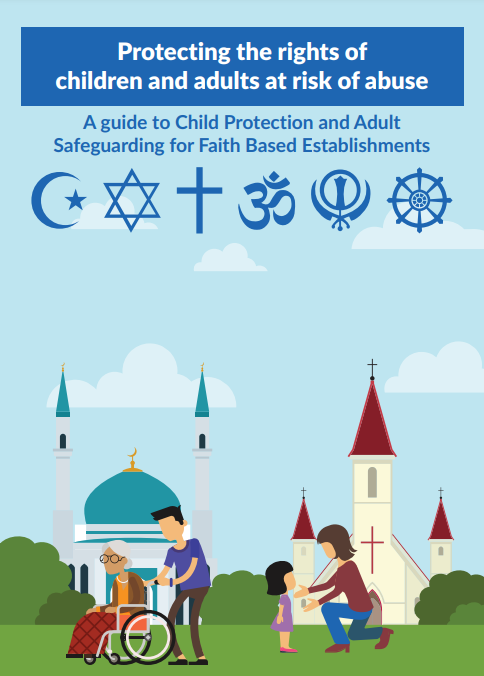Guidance and briefing notes
There are a number of briefing notes and resources that have been developed or shared by TWSP, all of which can be found below:
Adults
- Safeguarding Adults Overview: Information on idenifying safeguarding concerns, definitions and key contacts
- Domestic Abuse experienced by Older People: A link to the Dewis Choice website containing free training and guidance for those working with older people, ot those experiencing domestic abuse or care-giver stress.
- Lasting Power of Attorney: explaining what a Lasting Power of Attorney (LPA) is, what it can be used for, how to make it and ending it,
- Next of Kin: a briefing note developed to explain the legal context of a next of kin, including their legal rights, and how to links to a Lasting Power of Attorney.
- Power of Attorney: highlighting what a Power of Attorney can be used for, why you might need to appoint an attorney and their responsibilities.
- Principles of Consent: providing an overview of what constitutes consent, the various forms and how this links with mental capacity.
- Self Neglect: explaining the signs of self neglect, risk factors and how to seek advice and support. Information sessions focussing on self-neglect and mental capacity which were delivered by Lorraine Currie (Professional Lead, Shropshire Council) and Duncan Henney (Assistant Team Leader, Adult Safeguarding, Telford and Wrekin Council) are available to view by selecting 'March 2022 – PowerPoint presentation'
- Safeguarding and Wellbeing: information about what safeguarding is and the different types of wellbeing.
- Adult Grooming: explaining the signs of adult grooming, how to report it and how to seek advice and support.
- Making Safeguarding Personal (MSP): Information about what MSP means and how to achieve it (leaflet) or view our MSP presentation to professionals, download our 7 essential adult safeguarding questions
- Understanding Legislation: the legislation that underpins adult safeguarding in the UK.
- Creating Safer Places: Ensuring safeguarding is happening on a grass roots level.
- Organisational Abuse: Information about what organisational abuse is within a care setting, and how to report it.
- Sport and Activity: Advise and support regarding adult safeguarding in sport and activity settings.
- Tips for raising an effective safeguarding concern with your local authority: useful hints and tips around what to include in a safeguarding referral to adult services.
- Legal Powers for Safeguarding Vulnerable Dependent Drinkers: useful information and summaries about powers available that can be used to safeguard vulnerable dependent drinkers.
- Easy Read Guides by Mencap (searchable library), Easy Read Information by NHS England
- Professional Curiosity Toolkit.
Children
Download the briefing notes developed following a Learning Review.
- A Parent's Guide to Internet Controls: a guide developed by National Online Safety, to explain to parents and carers how to protect children and young people from harmful internet content.
- Are you professionally curious?: following the discretionary MAPPA case review into the murder of Georgia Williams, this poster highlights the areas that could be improved upon, and serves as a reminder for all of our responsibility to safeguarding.
- Bruising in children: 'Those who don't cruise, rarely bruise' poster, to highlight patterns of bruises which may be suggestive of abuse.
- ICON: materials to help support parents in coping with crying babies
- Core Groups: briefing note outlining what Core Groups are, their purpose, the roles of agencies and expectations for the meetings.
- Keeping children safe in sport: posters released by the National Working Group (NWG) to share awareness of how to keep children safe in sport.
- Online gaming: a variety of briefing notes designed to raise awareness of potential safeguarding issues within online games.
- Respect Yourself: everything young people need to know about sex, contraception and staying safe in Telford and Wrekin.
- Safe Places: 'I am me, and I deserve to be safe' contains information for children and parents about the Safe Places programme, including people to go to if a child feels unsafe.
- What's the bigger picture?: a reminder to all that when dealing with incidents where both the victim and offender are children, it is important to look at the bigger picture.
Joint thematic areas of work
- Club Safeguarding Consideration List and briefing note: information and points for parents and carers to consider when choosing a club.
- County Lines: posters released by GOV.UK to support the Government's work to tackle County Lines drug dealing.
- Modern Slavery: posters designed by West Mercia Police to raise awareness of exploitation, victims, offenders and types of modern slavery.
- Faith Group Safeguarding Consideration List and briefing note: information and points for parents and carers to consider when choosing a faith group.
-
NICE Guidelines
These guidelines and subsequent recommendations address how best to keep adults in care homes safe from abuse and neglect.
The Guidelines include information on potential indicators of abuse and neglect by individuals or organisations and the safeguarding process from when a concern is first identified through to section 42 safeguarding enquiries. These guidelines make action-orientated recommendations to improve safeguarding for residents of care homes. There are recommendations on policy, training, and care home culture, to improve care home staff awareness of safeguarding and ensure people can report concerns when needed. They cover all adult residents of care homes, including people who stay at care homes for shorter periods (for example day visitors).
The TWSP recommend that these Guidelines should be used and referred to by the following groups:
- care home providers, managers, staff and volunteers
- other health and social care practitioners working with adults in care homes
- health and social care commissioners of residential care for adults
- local authorities and Safeguarding Adults Boards
- adults living in care homes, their families, friends, carers and advocates, and the public.
For a copy of the full Guidelines along with other useful information please visit the NICE website.
